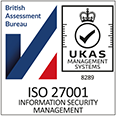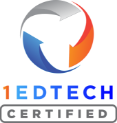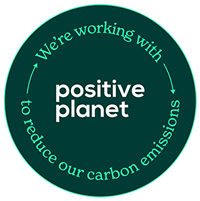Rebecca Anderson, Lead Learning Technologist and Lexy Buchan, Lead Learning Technologist from University of East Anglia on ‘Sharing best practice around institutional adoption & advancement.’ This recording is from our 2023 MiniBash community event which was hosted in Birmingham, England. Videos are for educational personnel only and require a live educational email to watch. You can read the video transcript below.
Transcript:
Thank you. That was a that was a lovely intro and I hope the expectations aren’t too high.
Fortunate to have the last session, hopefully half of you are a little bit of sleep and won’t question me too much.
So So as I said, so I’m Lexy Buchan. This is my colleague Rebecca Anderson. We’re both lead learning technologists from UEA.
And we’re here today. We’re just gonna talk about how our institutional rollout has gone, how it’s going, and hopefully wake everyone up again with some interactive learning.
So we’re gonna talk about the background of PebblePad at UEA. The rollout strategies have gone really well for us. And that’s where I’m going to set panned over to my colleague, Rebecca. You can talk about what hasn’t gone well for us, which is a very strategic idea on my path. And we’ll have a bit of a group discussion.
So PebblePads been used at UEA since about 2019. By our medical school, Also, our business school in some of our health sciences.
And then last year, we kind of took the jump and went right. We’re going institution wide. So jumped in with both feet really. And pretty much anyone who wants to use PebblePad, as of August last year, has been able to use And our usage has increased quite dramatically. We’re quite almost about thirty five percent. We’ve had an increase in just one year, which we’ve really quite proud of.
It’s been particularly on our work based programs. So we’ve seen a lot of places, work based programs, placements, those kind of courses.
For those who don’t know, UEA is quite a big quite a big university. We’ve got about fifteen thousand students.
So we’ve seen a nice uptake particularly particularly at our schools such as health sciences, which clearly seems to be nice into what went well. So we’ve had some really good uptake from specific schools. So pharmacy, health sciences generally. We managed to get the big fish got them all on board at once. It was very exciting.
And we’ve also had social work who jumped in, kind of went, yep, all of them at once. We’ve had some more tentative toe diapers from biological sciences, education. You can get a couple of people on board.
But that’s gone quite well, as well as our art media and American studies who have also been getting a few of their modules on board. And we’ve been supporting kind of individual use cases here and there. And that’s been probably more work in a strange way, but it’s been quite successful in kind of getting the message out to their colleagues and and similar to the previous presentation talking about getting departments to talk to each other and kind of get that ripple effect. And we have been seeing that from our individual cases.
And we’ve been particularly good, I think inspiring that initial interest in PebblePads. So we’ve had a lot of introduction PebblePad sessions, and people have come and gone, yes, this looks amazing. And then we probably get about forty percent of them to get onto PebblePad, and the rest of them somehow disappear. And that’s probably where we’re we’re trying to pick up as of this year. But we definitely don’t have an issue in getting people excited to use it. And I think it kind of comes down to that time.
And the encouraging people to change their way of working, to look at different ways to use their assessment. And before I step on record studies anymore, What has gone less well for us? Thank you, Lexy. So thinking about what has gone less well.
So at the u e a, generally, it’s much organizers who can choose which technologies they use for their assessments.
And and it’s been primarily, as like you said, the work with learning programs that have taken up PepplePad and really run with it. We have raised less awareness, I would say, of the possibilities that pepper pads outside of those modules. And for us, it’s a really our job to make sure that have all academics are aware that they have PebblePad, come in their learn technology toolkit, what it can do, what it can support and why then why choose to use it.
And kind of as we bring more people on board, and of course, I have to scale up our support processes.
So the moment it is really just lexia and myself primarily who are supporting Pepal pad. And we are doing a lot of one to one support and also building work books for people, which is quite time consuming. So as we increase our reach across the UEA for PebblePad, we need to make sure that those support prices processes are scaled up as well.
And we need to support academics kind of go from that initial interest to the actual implementation and using it with students. So those are our carb goals and the things that we’re looking at for twenty three, twenty four, and going forwards. And we have some ideas about how we can do that and how we can push that forwards. But what we’d really like to do today is to kind of wake you up at the end of the day.
And and so just really need to kind of learn from all of the experiences and all of the kind of expertise and wisdom is in the room. So you should see under your seat something that looks like this. And and we’d like you to use this as bit of a start for ten and to kind of turn to the people around you. Hopefully people who have art at your institutions and think about the rollout at your own institution have what’s gone well, what went less well, and those things that you’d really recommend that for institutions who are in this position at the moment, what methods you’d recommend in the rollout.
You’ve got some space at the bottom where you can put in some additional ideas, and like a a text box at the bottom as well for any additional text and things you want to add in there. So please do talk to each other. And and if you can make sure that you hand these to us or kind of leave them in obvious places. At the end, we’ll calculate everything together and hopefully make it into a resource that we can then show a PebblePad and with all of you.
After today. So, yes, please. Go for it. Please talk to each other.
Got lots of conversations going on in the room now, hopefully about this. And so please do make sure that you hand in those papers so that we can calculate all the back together and covering it into one resource. But does anyone have any particular insights or anything they would like to share or any kind of roll out strategies or methods that have gone really well for them? At their institutions. They want to make everyone aware of, putting on spot.
Do we have Mac yeah.
Walk up there faster than making you walk up here. So one of the asynchronous learning well, it was kind of blended optional blended learning opportunity we did for faculty when we did our soft launch. We called it the PebblePad Rolling Stone tour.
And it was give us thirty minutes a week for ten weeks. And in each week, we talked through one component. It’s built in a workbook So I’m sure we can maybe get our customer service folks to make a copy and share it if somebody wants it. And but it basically takes them to roll pieces, and they built their first portfolio by the end.
And it was directed at faculty. And I think we had, like, eighty five or ninety faculty sign up. The first time in the pandemic to do that, and it runs every semester now and people really like it. That’s amazing.
And did you find sorry. I gave them a question follow-up question. That those eighty five to ninety people, they kind of used it once they’d learn how to use it? Or I would say the conversion rate of doing a training and then beginning to use in your course is still sitting about fifty percent based on the surveys that I’ve been doing, but I think a little of that is timing and a little of it is the culture of different program departments and whether their peers are ready to go or not.
So I still see that sort of as the plant the seed and they’ll come back.
Thank you. So did anybody else want to share anything that’s quite well for them in their institutions?
I I’ve been lucky in the I’ve been able to sort of evolve things and I think that’s been highly highly valuable in the respect that you you find your champions and you’ve you’ve and you and you and you get the people who are really keen on the wave on the first wave because there’s gonna be a lot of people looking over the shoulder saying is it alright? And then they’ll pick the second they’ll, you know, they’ll they’ll come in on the set later on, you know, you know, sort of second and third wave. So I think that’s That’s really important if you’ve got if you’ve got that time because the challenge with trying to do big bang is that is that the the people who if it doesn’t go well for somebody for some reason, they can make it really nasty.
It goes really, really septic very very quickly. They’re very very loud. So trying to keep the people on board and get the people who are keen first. So that would and I’m not sure it’s quite in this.
This is a method but it If if you can just move in slightly slower, actually, it might be more effective in the long run. Yeah. There’s really interesting point. And I think from our point of view as well, but introducing it more slowly, it gives us time to learn where those common kind of issues are and to increase our knowledge as well.
So it kind of gives us time to when it does become a more of a scaled operation as it were. That we’ve got that background knowledge to support it as well.
So anything else anyone would like to share or anything that’s gone maybe less well that like to say no Don’t do that. Yes. So sorry.
We have used PebblePad for nursing and allied healthcare professionals since long before. I’ve been at the ins since way back when. We’ve been trying to roll it out but we keep running into this. It it’s now just a nursing and allied healthcare thing.
And no one else can see. Well, what would we do with whoever we are? We’ve got no real use for it. So just getting that in shall barrel.
Like why would we come to the training? We’re not nursing or midwifery or anything like that. And that’s been kind of our big barrier even getting over that kind of original reluctance to come to the training at all. Yes.
Yeah. It’s really interesting. I I do wonder if that’s why we’ve had some luck with social work as well because it’s been kind of our medical school and I helped science at school who I’ve led the way and there are some easy card parallels you can make with social work as students going on placements and things. So I think if you can kind of draw those parallels between court that you can help that as well.
So thank you. No. Any final comments at all that anyone would like to make.
Okay. So thank you for taking part in that. And please do make sure that and if you’ve completed these, I don’t know if you’d like to leave them at the end of the row or if you give them to a PebblePad staff member, so I’d like to give you a job or something. But, yeah, if you make sure that we can kind of all of these together and we can put it into like one resource. No. Thank you very much.







